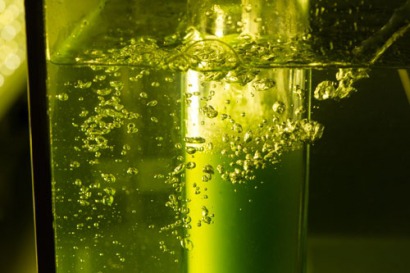
According to ABO, the publication of “Industrial Algae Measurements, Version 6.0” (IAM 6.0) will be a vital tool for researchers calculating and comparing disparate methods. Algae operations vary in size and in the technologies used and this makes performance comparisons across the industry difficult. The lack of a common language to describe the economic and environmental impact of an algae production facility, including all inputs and outputs, has been a challenge for anyone seeking to evaluate a specific process.
However IAM 6.0 establishes a methodology and common descriptive language that can be applied across a variety of algae operations, regardless of size, technology or end products.
“The fast pace of development in the algae industry makes a standard-setting document like this absolutely necessary” said Dr. Lieve Laurens, Chair of the ABO’s Technical Standards Committee and Senior Scientist at the National Renewable Energy Laboratory. “The descriptive language established by the ABO will help compare and quantify how diverse algae technologies are performing, and how they measure up at commercial production scale. This can help give information to commercial and industrial groups and could be considered an operator’s manual for building the algae industry. The document provides references and resources for anyone looking into regulatory, characterization, and certification routes for biofuels and bio-products.”
IAM 6.0 recommends the methodologies that can characterize economic and environmental inputs of almost any algae biomass operation. These operations include heterotrophic, autotrophic, open pond, photobioreactor and open water algae production as well as harvest and conversion processes for microalgae, macro algae and cyanobacteria. The inputs considered by the standards include the carbon, water, energy and nutrients required by the algae as well as land requirements, process consumables and manpower requirements used during production. Outputs measured by the standards include the different classes of algal products as well as industrial waste emissions such as gas, liquid, and solid discharges.
The first edition of the document was published by ABO in 2010, originally titled “Algal Industry Minimum Descriptive Language.” It was the first time the notion of a common language in the algae industry had been articulated for measuring algae industry inputs and outputs. Since then, algae technology and commercial development have undergone dramatic changes that only enhance the need to apply standards that can compare efforts among researchers, producers and suppliers.
With new production facilities planned or operating around the U.S., the algae industry is rapidly presenting itself as an opportunity to address many of the energy, food, economic, and environmental challenges facing the world today. Algae can be used to develop fuel for vehicles, recycle carbon dioxide, provide nutrition for animals and people and create millions of jobs. Algae can produce high yields and can be grown in saltwater and on marginal lands without harmful impact on freshwater supplies or agricultural land.
For additional information:
Industrial Algal Measurements (IAM) 6.0

